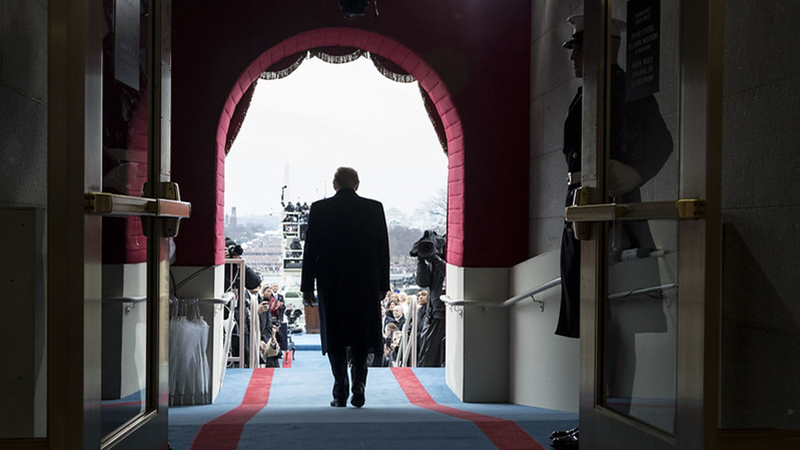Following the failed assassination attempt on Republican presidential candidate Donald Trump, which has energised the party at a time of weakness for Joe Biden and the Democrats, markets have begun to anticipate a victory for Donald Trump in November’s US presidential election.
As a result, portfolio managers have discussed what to expect from a second term for the former president.
With a potential Trump administration expected to push for increased military spending, both at home and through pressuring Nato allies to meet or exceed their spending commitments, Chelsea Financial Services senior research director James Yardley believes this could create a strong tailwind for the defence sector.
“Furthermore, Trump’s VP nominee, JD Vance, is an arch-isolationist – this has caused growing concerns in Europe that the US security rug could be pulled away, forcing European nations to significantly increase their own defence spending,” Yardley says.
“Investors are already eyeing this sector, though some are still hesitant due to ESG considerations. However, the conversation around ESG is evolving, with more investors recognising the importance of security and defence in today’s geopolitical climate.
“This shift could lead to broader investment in defence stocks, potentially making them an attractive option in a Trump-led global economy. Through our VT Chelsea Managed funds, we have invested in defence-focused ETFs which offer broad exposure to the sector.”
See also: King’s Speech: Pensions reform and economic growth take centre stage
Isolationism
While both Trump and Biden are expected to pursue protectionist policies to revitalise American manufacturing by placing tariffs on Chinese goods, their approaches diverge.
“Biden plans to raise taxes on corporations and the wealthy, while Trump favours extending his previous tax cuts and increasing import tariffs. Biden would maintain alliances, whereas Trump’s transactional style may blur lines between allies and adversaries, raising geopolitical risks,” says Raphael Olszyna-Marzys, international economist at J Safra Sarasin Sustainable Asset Management.
In terms of market impact, Olszyna-Marzys says Trump’s possible erosion of checks and balances could hinder economic growth in the long term. Meanwhile, bond yields could rise further with a Republican ‘clean sweep’ of both houses and the presidency, though they are expected to stay high. He adds that protectionist policies are also likely to curb long-term economic growth.
“Overall, we believe Trump’s policies are likely to result in slower economic growth, higher inflation, increased bond yields, and a weaker dollar in the medium to long term. In the short term, a looser fiscal policy stance could provide a temporary boost to the economy, potentially lifting equity prices. Additional tariffs under Trump might initially strengthen the dollar, though this effect would likely diminish over time.”
Chelsea’s Yardley adds that Trump’s ‘America First’ approach and potential tariffs on Chinese goods could also see US small and mid caps receive a boost.
“Funds like Artemis US Smaller Companies and T Rowe Price US Smaller Companies Equity are particularly well positioned to benefit from this trend. Furthermore, small-cap stocks tend to outperform in a falling interest rate environment, which will likely begin early into Trump’s term.”
See also: Polar Capital Tech’s Rogoff: ‘Concentration risk remains elevated’
Looking back at Trump’s first presidency through the lens of the S&P 500 Equal Weighted Sector index, the technology sector led returns with a 145.2% increase between the start of 2017 and the end of January 2021. Healthcare also performed well, up 88.5%, while industrials rose 64.3%.
Greg Eckel, portfolio manager of Canadian General Investments, said tech’s dominance should not come as a surprise, as the secular drivers embedded within constituent companies are long-term, sustainable, and have the “staying power to persist regardless of political stripes”.
“Expect this to continue with Nvidia Corp, Amazon Inc and Microsoft Corp as logical US large cap choices and, for pureplay e-commerce growth, a Canadian company called Shopify Inc fits the bill,” he says.
“Healthcare, surprisingly, was a big winner during Trump’s term despite efforts to overturn Obamacare and attempts to reduce the cost of pharmaceuticals. Be wary and expect a volatile environment irrespective of the next administration as the US healthcare industry is extremely complicated and highly prone to changes in government policy.
“Going forward, Industrials seem well placed to build onto gains shown in the data set as commitments to infrastructure build have bipartisan support in the US. This will continue to benefit pure-play engineering companies like Stantec Inc and WSP Global Inc. Supportive for this group’s prospects include growing reshoring initiatives with supply chains undergoing change and geopolitical events reshaping allies and trading partners.”
He added: “Just in case you weren’t paying attention the first time, be ready for a rollercoaster ride in case there is a second time and, if there is, hold onto your hat or get some of that sticky stuff that holds down his hair to keep grounded.”










